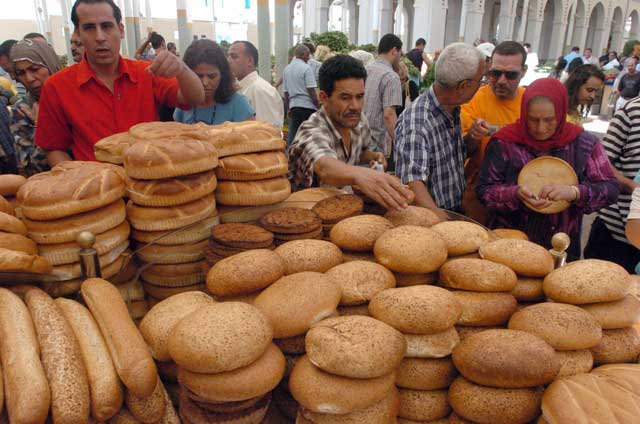Simon Calder: Spilling the beans on air fares
The man who pays his way

Your support helps us to tell the story
From reproductive rights to climate change to Big Tech, The Independent is on the ground when the story is developing. Whether it's investigating the financials of Elon Musk's pro-Trump PAC or producing our latest documentary, 'The A Word', which shines a light on the American women fighting for reproductive rights, we know how important it is to parse out the facts from the messaging.
At such a critical moment in US history, we need reporters on the ground. Your donation allows us to keep sending journalists to speak to both sides of the story.
The Independent is trusted by Americans across the entire political spectrum. And unlike many other quality news outlets, we choose not to lock Americans out of our reporting and analysis with paywalls. We believe quality journalism should be available to everyone, paid for by those who can afford it.
Your support makes all the difference.As a prospective purchase, a tin of beans is the emotional opposite of booking a holiday. First, consider the sense of anticipation. An excursion to buy "Haricot Beans (49 per cent), Water, Tomato Puree (20 per cent), Sugar, Modified Maize Starch, Salt, Onion Powder, Paprika, Sunflower Oil, Flavouring" at Tesco does not have the same mouthwatering appeal as a trip to, say, the fair Scilly Isle of Tresco.
Next, the experience itself. Consuming a tin of Tesco beans (three for £1 if you buy by tomorrow) is unlikely to be as enriching as an indulgent weekend of in a city-beach destination such as Barcelona or Tel Aviv – see pages 14 to 16.
The third component of a purchase is the memory of it. And few people are likely to recall that beans-on-toast encounter in the kitchen with as warm a glow as they do that magical sunset in a far Pacific port while tucking into freshly grilled fish and sipping a chilled white wine.
Tinned food, though, has several important advantages over travel in terms of pricing. The cost of beans tends not to rise the closer you get to meal time. And neither does the price depend on the number of people ahead of you in the supermarket queue with an identical tin in their basket.
Ever since the travel industry discovered "yield management" – the dark art of squeezing the maximum possible revenue from each seat on an aircraft, or bed in a hotel – prices have wobbled more than a 35p Tesco raspberry jelly. So the revelation this week from the Office for National Statistics that air fares from Britain soared by 13.5 per cent in the year to December does not spell the end of cheap flying. Each of us has a personal consumer price index. A large chunk of mine is made up of air travel, so I am acutely aware of fare fluctuations over the past 15 years – which was when the low-cost revolution began. Since January 1996, the cost of the cheapest flight from Luton to Edinburgh has fallen by an annual rate of 1 per cent – easyJet charged a minimum of £29, compared with £24 now if you choose the right off-peak departure. The lowest price from Heathrow to Perth in April, the base fare for UK-Australia flights, has risen from £499 to £699, just above 2 per cent a year.
As always with damn lies and statistics, you may choose your own examples to demonstrate the opposite. But it is indisputable that anyone keen to grab the lowest fares – and flexible enough with their timing – can get air travel at rates that, in real terms, are substantially lower than 15 years ago. And that is despite the inexorable rise in Air Passenger Duty, which accounts for about one-eighth of the Perth fares and exactly half the hop to Edinburgh.
The past 15 years has seen hyper-inflation of a kind: the dramatic expansion of our horizons, and an increase in the range of origins and destinations. In 1996 a journey from Birmingham to Krakow would have involved a 24-hour bus ride, rather than the 90-minute flight, and cost more than the £42 you can grab on Ryanair for a flight next month. Jet2 is also piling them high and selling them cheap, for example Leeds/Bradford to Barcelona for £94. And to taste the best beans on the planet, fly with Thomson next Wednesday from Manchester to Cancun, for a deflationary £299 return.
Haricots, holidays and trips to Tunisia
Another difference between haricots and holidays: a supermarket is unlikely to say, after you order and pay for some beans, that "The government says we can't supply beans right now, but we're hanging on to your money in case the ban is lifted." Yet that is effectively what Thomas Cook and Tui (owner of Thomson and First Choice) are telling travellers with trips to Tunisia in March and April. While German clients of these companies can switch without penalty any bookings up to mid-April, British travellers departing after 16 February (for Tui) or 28 February (Thomas Cook) have no such rights. They can only wait and see if the Foreign Office warning against "all but essential travel" is eased before the departure date.
Meanwhile, Tunisia's website, cometotunisia.co.uk, promises visitors "surprises, delights and the most amazing contrasts". Good news for those keen on pulse-based North African specialities such as chick-pea soup.
Join our commenting forum
Join thought-provoking conversations, follow other Independent readers and see their replies
0Comments